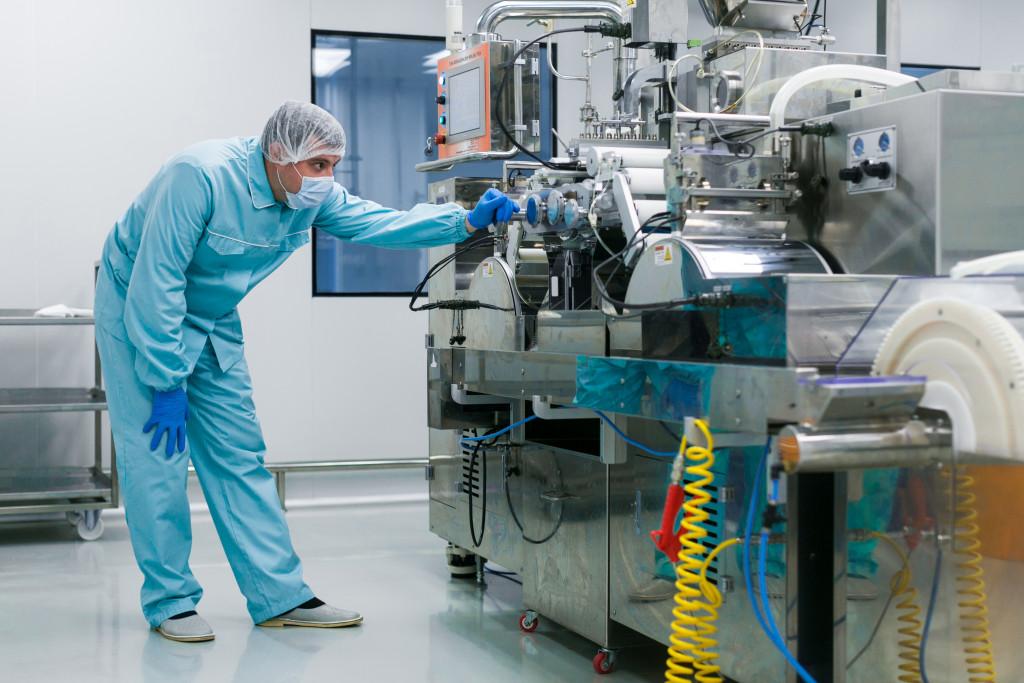- Implement lean manufacturing principles to eliminate waste and improve efficiency.
- Embrace automation and robotics technologies to increase production speed, reduce human error, and free up the workforce.
- Adopt advanced quality control techniques such as SPC, Six Sigma, FMEA, and preventive maintenance for greater product reliability.
- Enhance supply chain management by partnering with suppliers and leveraging ERP and SCM software.
- Utilize adhesives manufacturing solution companies for expert adhesive selection, application methods, and process optimization.
As a medical manufacturing company, streamlining your processes is essential for maintaining efficiency, reducing costs, and delivering high-quality products. By optimizing your manufacturing processes, you can improve productivity, minimize waste, and enhance overall operational performance. This guide will provide five valuable tips to help you streamline your medical manufacturing process and drive success in your business.
1. Implement Lean Manufacturing Principles
Lean manufacturing principles focus on eliminating waste, improving efficiency, and maximizing customer value. Embrace lean practices such as 5S workplace organization, value stream mapping, standardized work procedures, and continuous improvement. You can achieve greater efficiency and productivity in your medical manufacturing process by identifying and eliminating non-value-added activities, reducing setup times, and optimizing material flow.
2. Embrace Automation and Robotics

Automation and robotics technologies can significantly enhance your medical manufacturing process. Identify repetitive or labor-intensive tasks that can be automated, such as assembly, packaging, or inspection processes. Implementing robotics and automated systems can increase production speed, improve accuracy, reduce human error, and free up your workforce to focus on higher-value activities. Work closely with automation specialists to assess your specific needs and identify the most suitable technologies for your medical manufacturing operations.
3. Adopt Advanced Quality Control Techniques
Quality control is critical in the medical manufacturing industry to ensure compliance with regulatory standards and deliver safe and reliable products. These tools enable you to proactively monitor and control quality throughout the manufacturing process, identify potential issues, and implement corrective actions promptly. You can reduce defects, enhance product reliability, and minimize rework or product recalls by emphasizing quality control.
Here are some advanced quality control techniques:
Statistical Process Control (SPC)
Statistical Process Control (SPC) is a powerful tool used to monitor and control manufacturing processes. It involves collecting data on product characteristics for analysis, identifying process trends, and comparing results against specified limits to detect process variations. With SPC, you can identify problems before they become too costly or create major quality defects. This allows you to take corrective action in the production process and improve product quality. By implementing SPC, you can reduce waste, improve efficiency, and increase customer satisfaction.
Six Sigma Methodologies
Six Sigma methodologies focus on eliminating defects by establishing measurable goals with numerical targets. The premise is that if you can measure it, you can control it. Through a series of methods and tools, Six Sigma allows organizations to identify areas for potential improvement and then develop and implement corrective actions to achieve desired results. By using Six Sigma methodologies, companies can maximize customer satisfaction by eliminating quality issues preventing them from delivering the best product possible.
Failure Mode and Effects Analysis (FMEA)
Failure Mode and Effects Analysis (FMEA) is used to identify potential failure modes in a process or system before they occur. This methodology helps you understand how different components interact by analyzing every step in the production process. FMEA also provides insight into how design issues could cause problems, allowing manufacturers to take steps to prevent errors proactively. With FMEA, you can ensure that your medical products meet customer specifications and comply with regulatory standards.
Preventive Maintenance
Preventive maintenance is a key quality control technique designed to prevent breakdowns in production processes or equipment before they occur. It involves regularly inspecting machines and equipment for wear and tear, servicing them as necessary, and implementing regular preventive maintenance schedules. By keeping machines in good working condition through these measures, you can reduce the risk of defects caused by poor-quality components or faulty machinery. In addition, preventive maintenance helps increase safety on the production floor by reducing workplace hazards.
4. Enhance Supply Chain Management

Efficient supply chain management is vital for streamlining your medical manufacturing process. Strengthen your supplier relationships by implementing collaborative partnerships and establishing clear communication channels. Implement just-in-time inventory management to minimize excess inventory and optimize material flow. Embrace supply chain technologies such as enterprise resource planning (ERP) systems or supply chain management software to improve visibility, coordination, and efficiency across your supply chain.
5. Utilize Adhesives Manufacturing Solutions Companies
Adhesives are crucial in medical manufacturing, providing secure bonding for various components and materials. Partnering with adhesives manufacturing solutions companies can offer significant benefits. These companies develop and supply adhesives tailored to the medical industry’s unique requirements, including biocompatibility, sterilization compatibility, and regulatory compliance. By collaborating with adhesives manufacturing solution companies, you can access their expertise in adhesive selection, application methods, and process optimization. This partnership can help you enhance the efficiency and effectiveness of adhesive bonding processes in your medical manufacturing operations.
In Summary
Streamlining your medical manufacturing process is vital for maintaining competitiveness and achieving operational excellence. By implementing lean manufacturing principles, embracing automation and robotics, adopting advanced quality control techniques, enhancing supply chain management, and partnering with adhesives manufacturing solution companies, you can optimize your operations and drive success in the medical manufacturing industry. Continuously seek opportunities for improvement, leverage technology, and collaborate with industry experts to stay at the forefront of innovation and deliver high-quality medical products efficiently and effectively. Streamlining your manufacturing process will position your business for growth and success in the dynamic healthcare industry.
